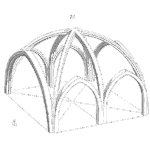Organizations can face a wide range of failure problems, ranging from technical to process failures. These common failures include equipment breakdowns, product failure, quality issues, and environmental incidents. These failures typically require a more systematic approach. This involves failure tracking and corrective measures implementation — in comes the FRACAS methodology.
The FRACAS process tracks and manages failures and problems in products or systems. Almost every industry uses this approach. The goal of FRACAS is to uncover the cause of errors and take corrective action to avoid similar occurrences in the future. The process of FRACAS involves failure documentation, conducting failure examination, corrective measures implementation, and continually seeking ways to enhance the process. [Read more…]
 Why is that some organization seem to break the reactive cycle and others don’t? After all most organizations have a
Why is that some organization seem to break the reactive cycle and others don’t? After all most organizations have a 
